
“Our cities are a assembly of steel, concrete and glass,” says Penda partner Chris Precht. “If you walk through the city and suddenly see a tower made of wood and plants, it will create an interesting contrast.” He couldn’t be more right. We’ve seen how alluring vertical forests are. A building devoted to being a celebration of everything natural would make a great urban as well as ecological landmark. That’s what Penda’s Toronto Tower aims at being.
Designed to be built using a modular system of wooden live-able unite (the GIF above explains it all), the Toronto Tower when completed will stand at 62 meters high, with 4500 sq.m. of residential space and extra space for public spaces like cafes or daycare centers. Each housing unit would also be home to a large number of plants and trees growing in private gardens that are a part of each and every residential unit. These individual units would be made from CLT (cross-laminated timber) and would be built off-site and brought to the site for stacking in its unique format. Penda favors this method of construction since it is faster, quieter, uses less waste, is more environmentally friendly, and adds a dash of warmth and life to an otherwise cold, concrete-and-glass skyline!
Designers: Chris Precht (Penda) & Timber.
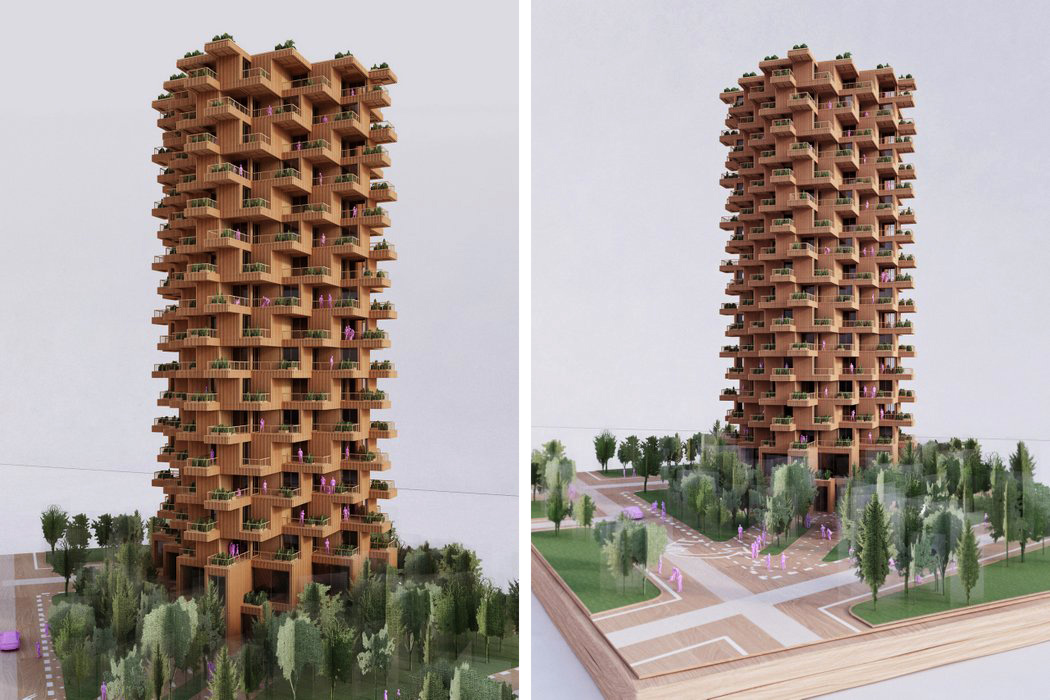
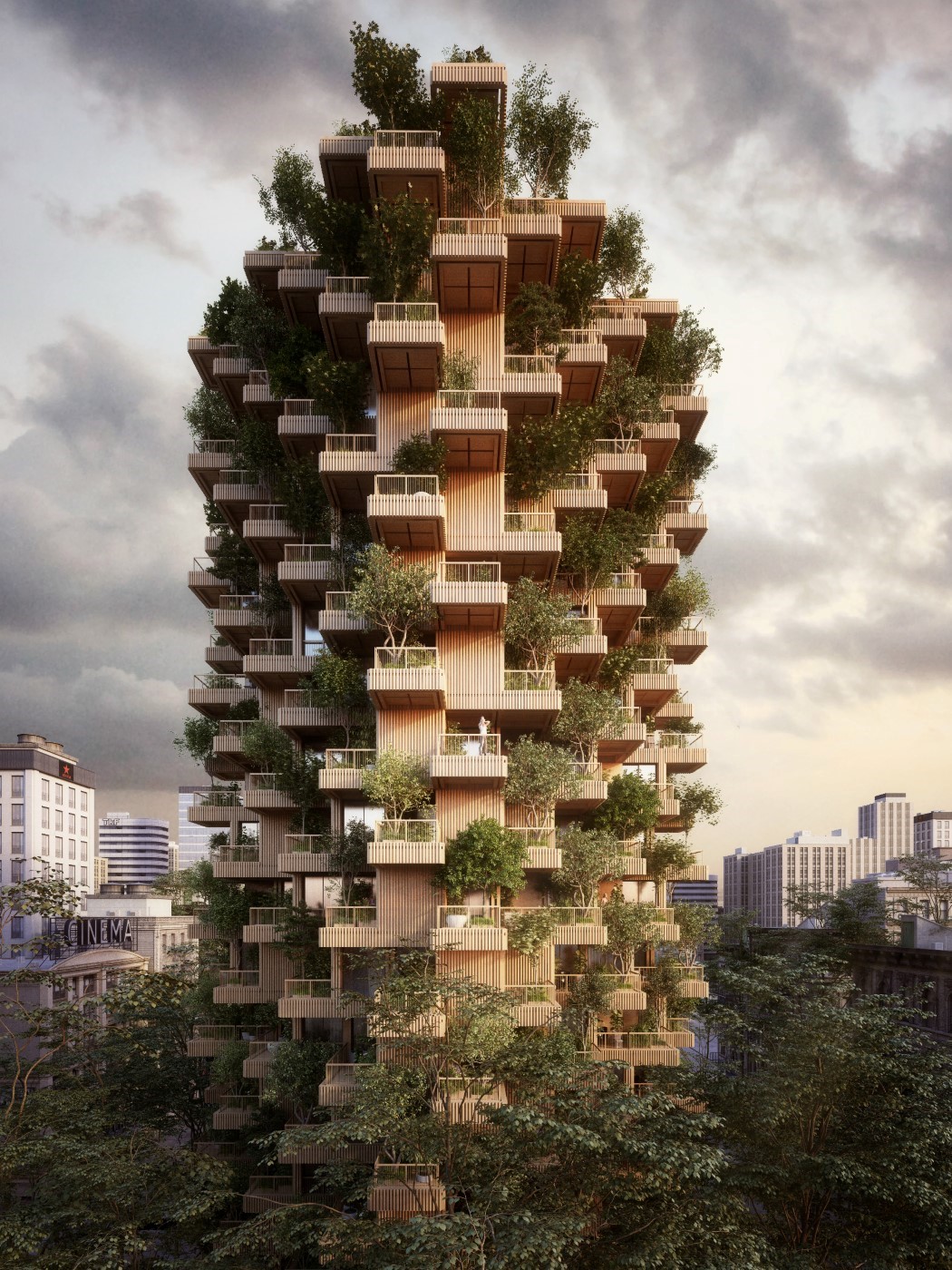
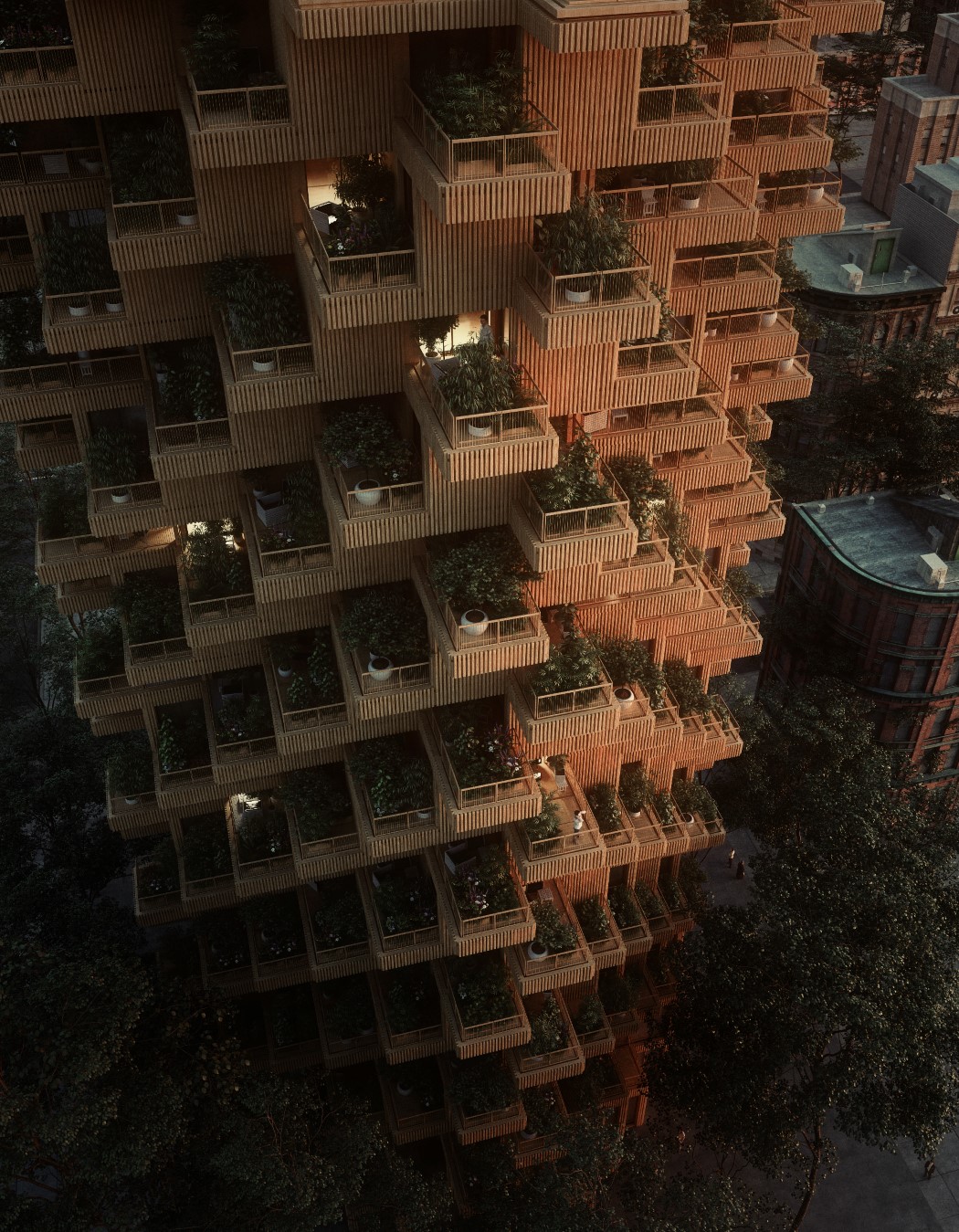
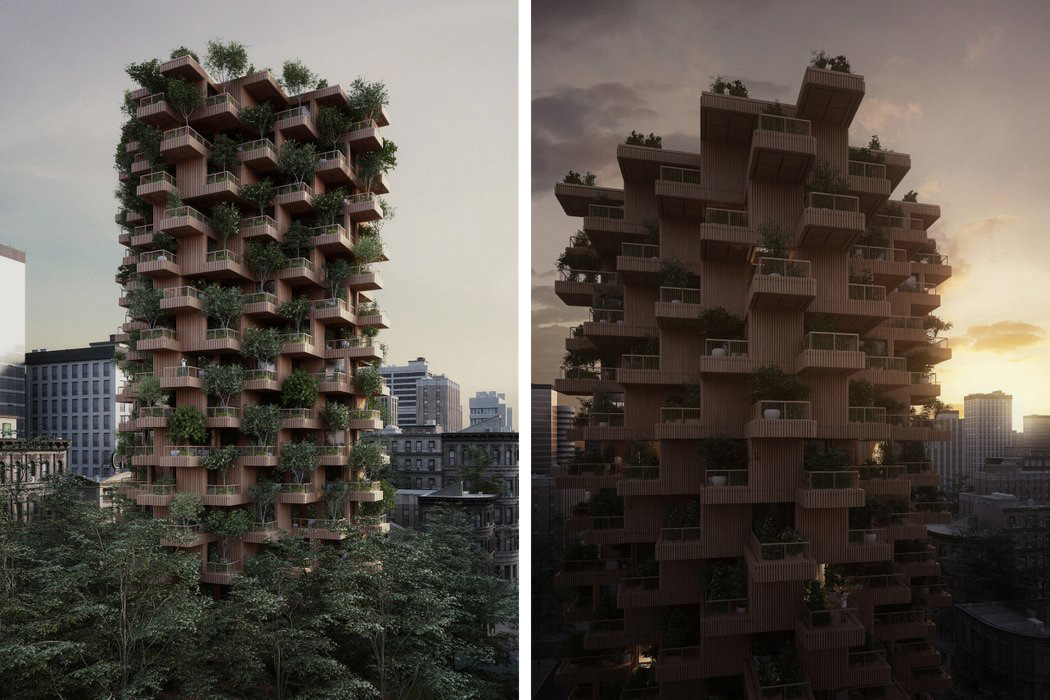
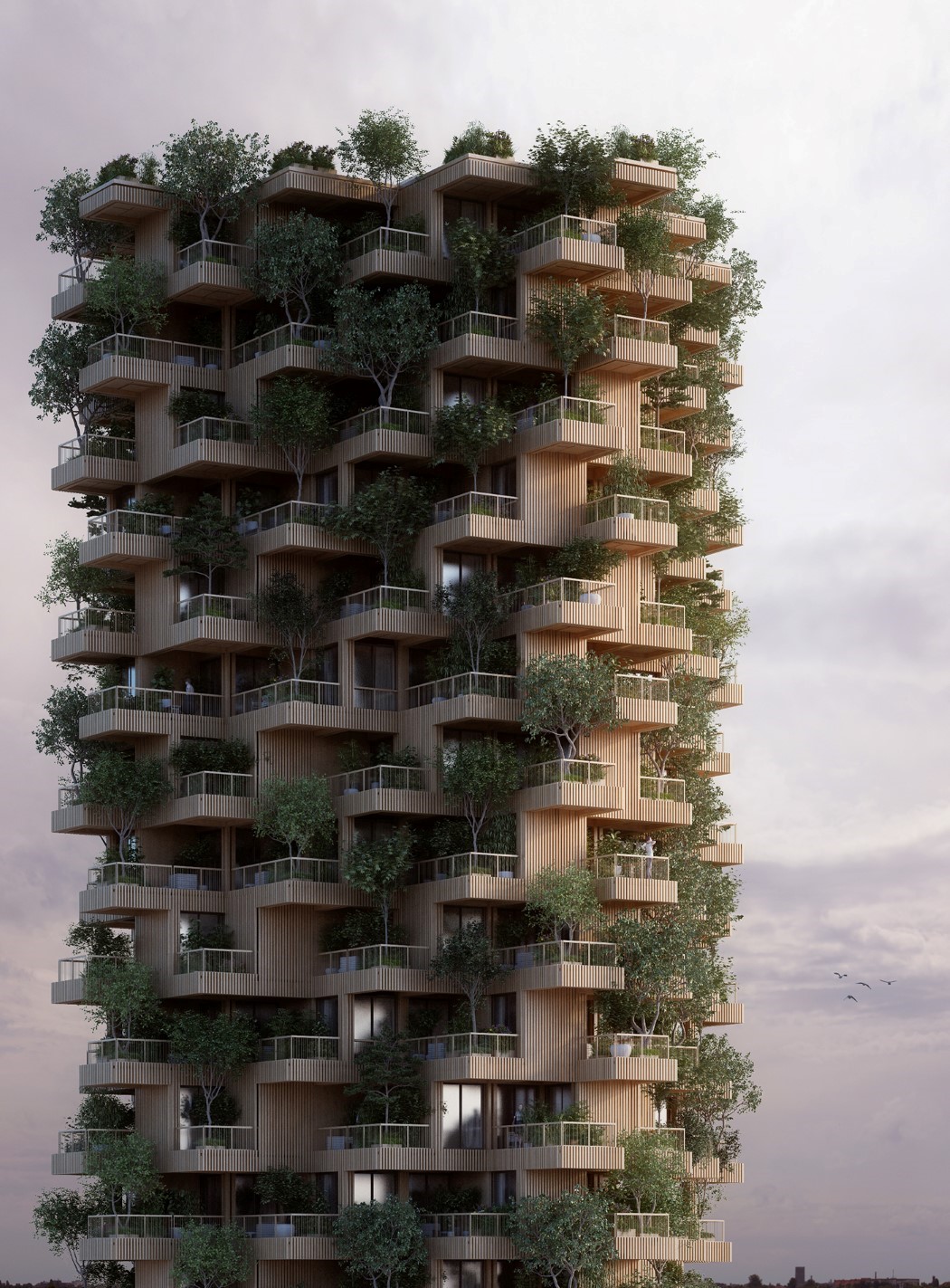
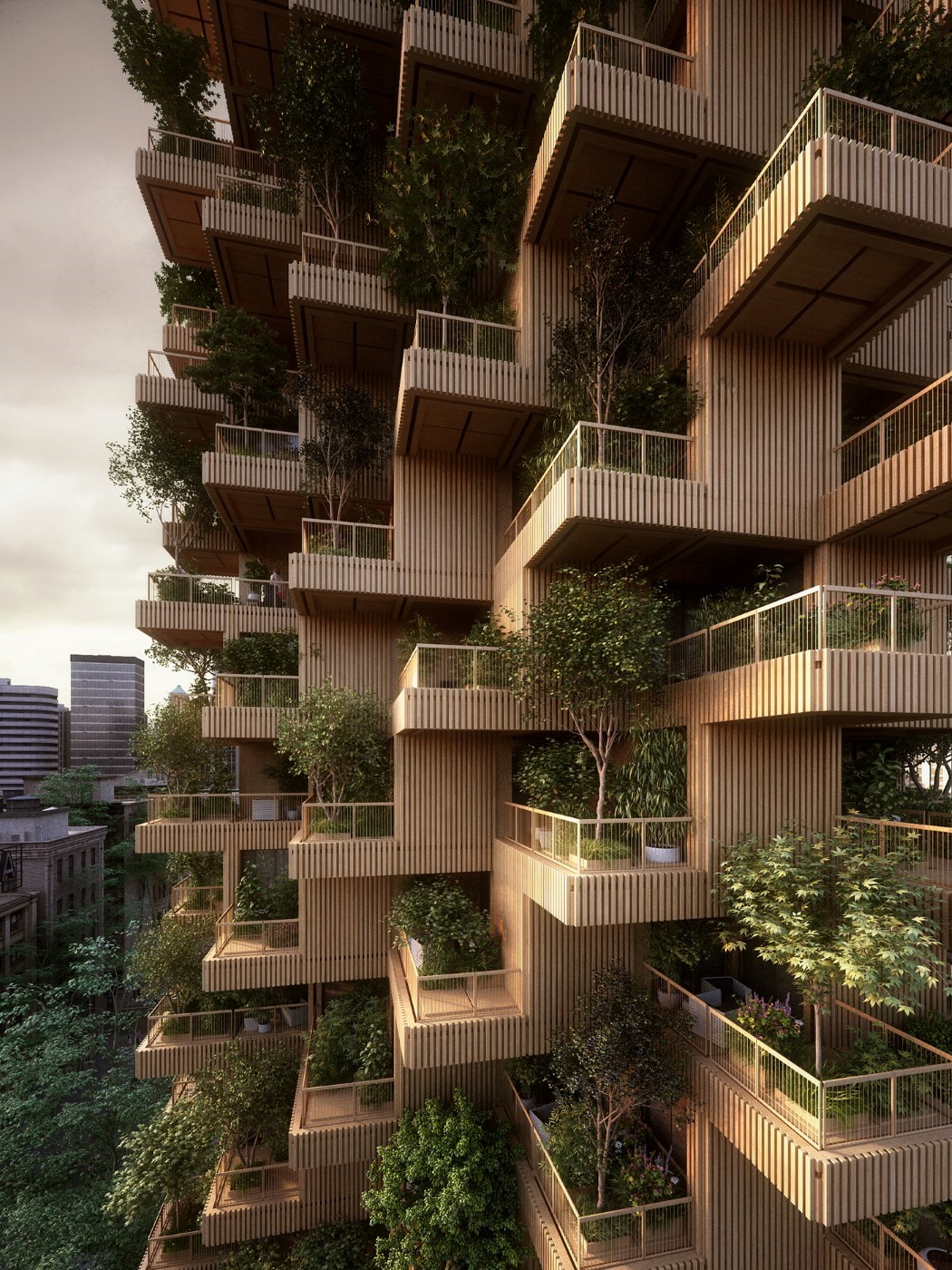
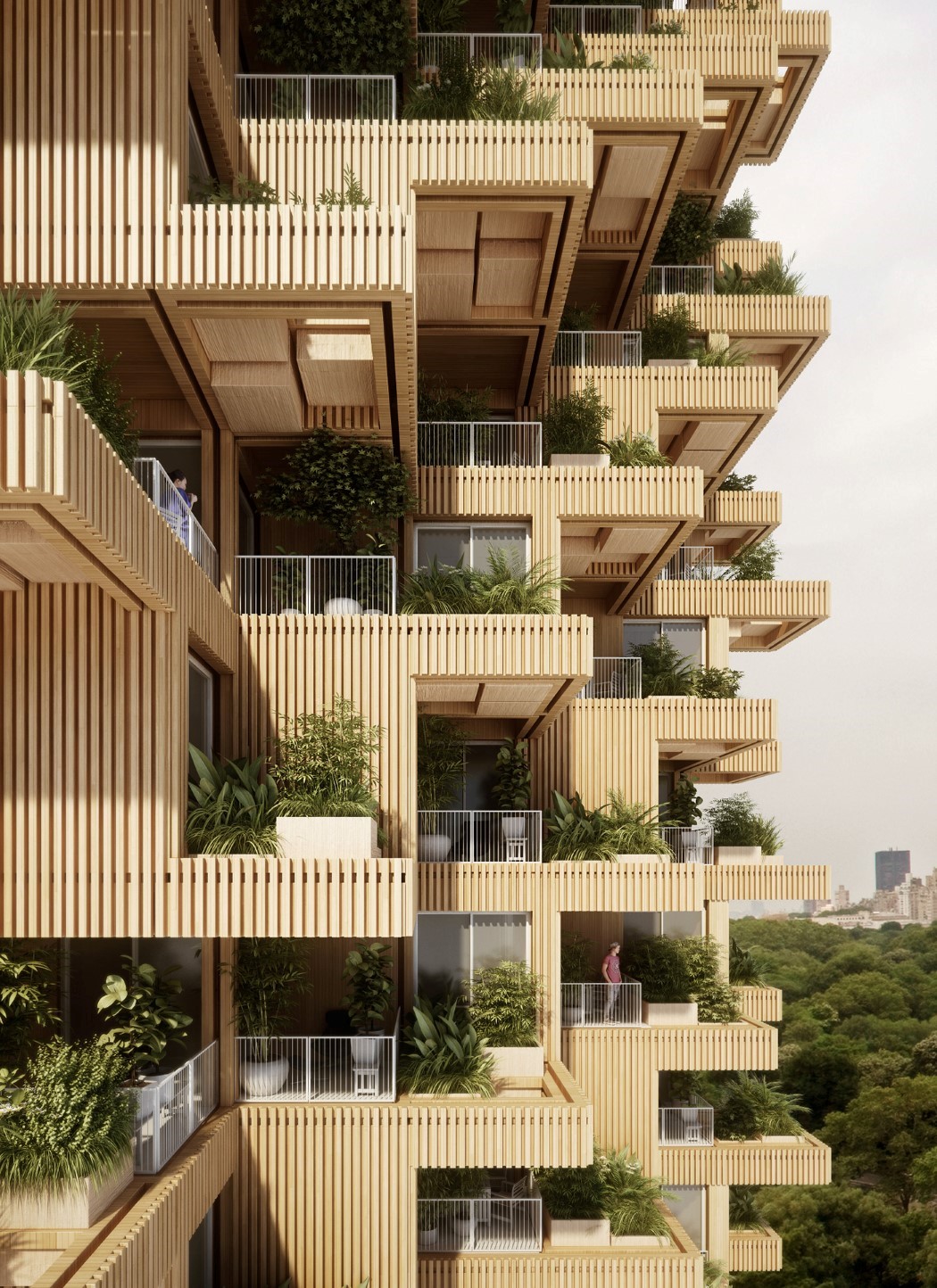
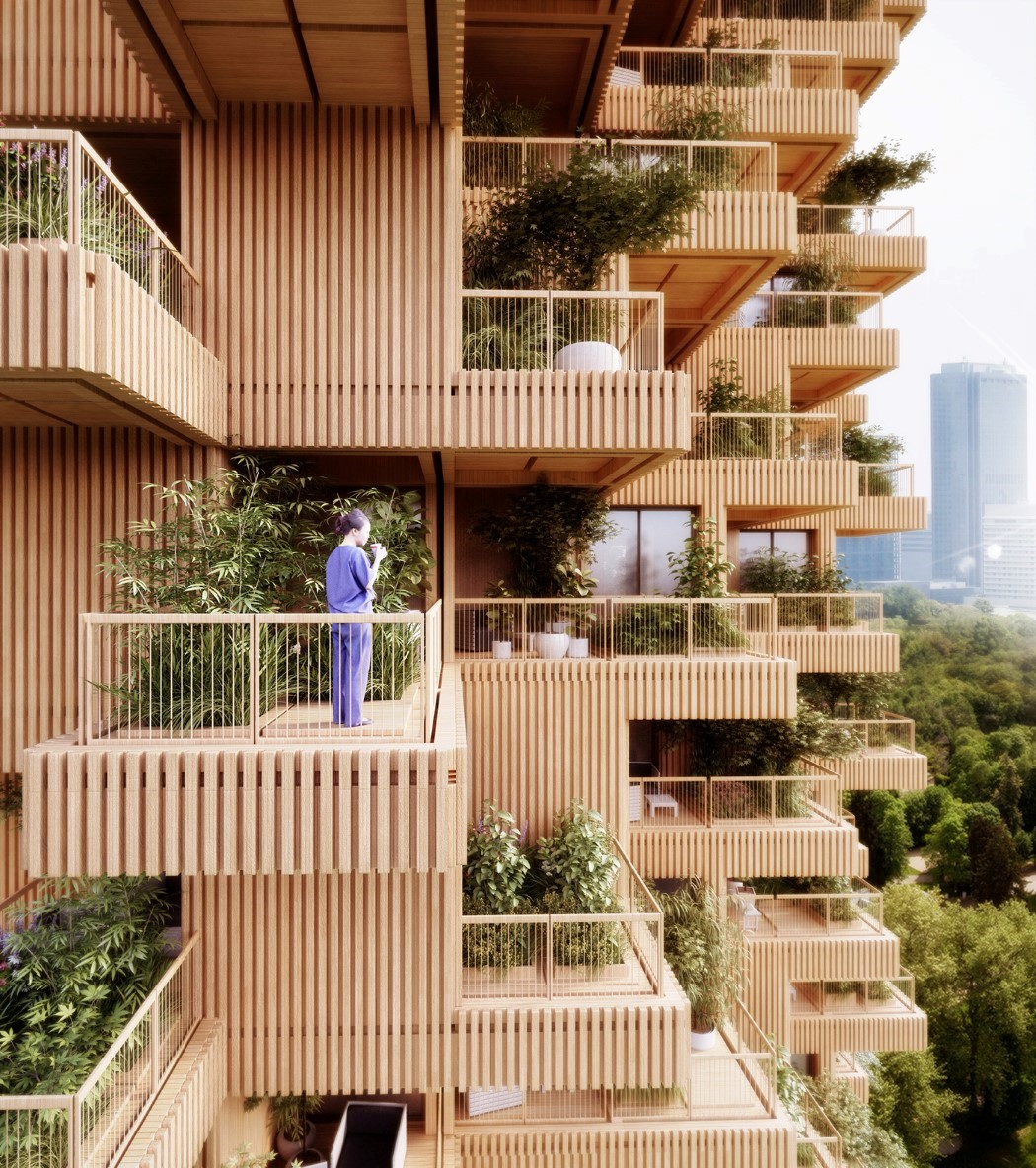
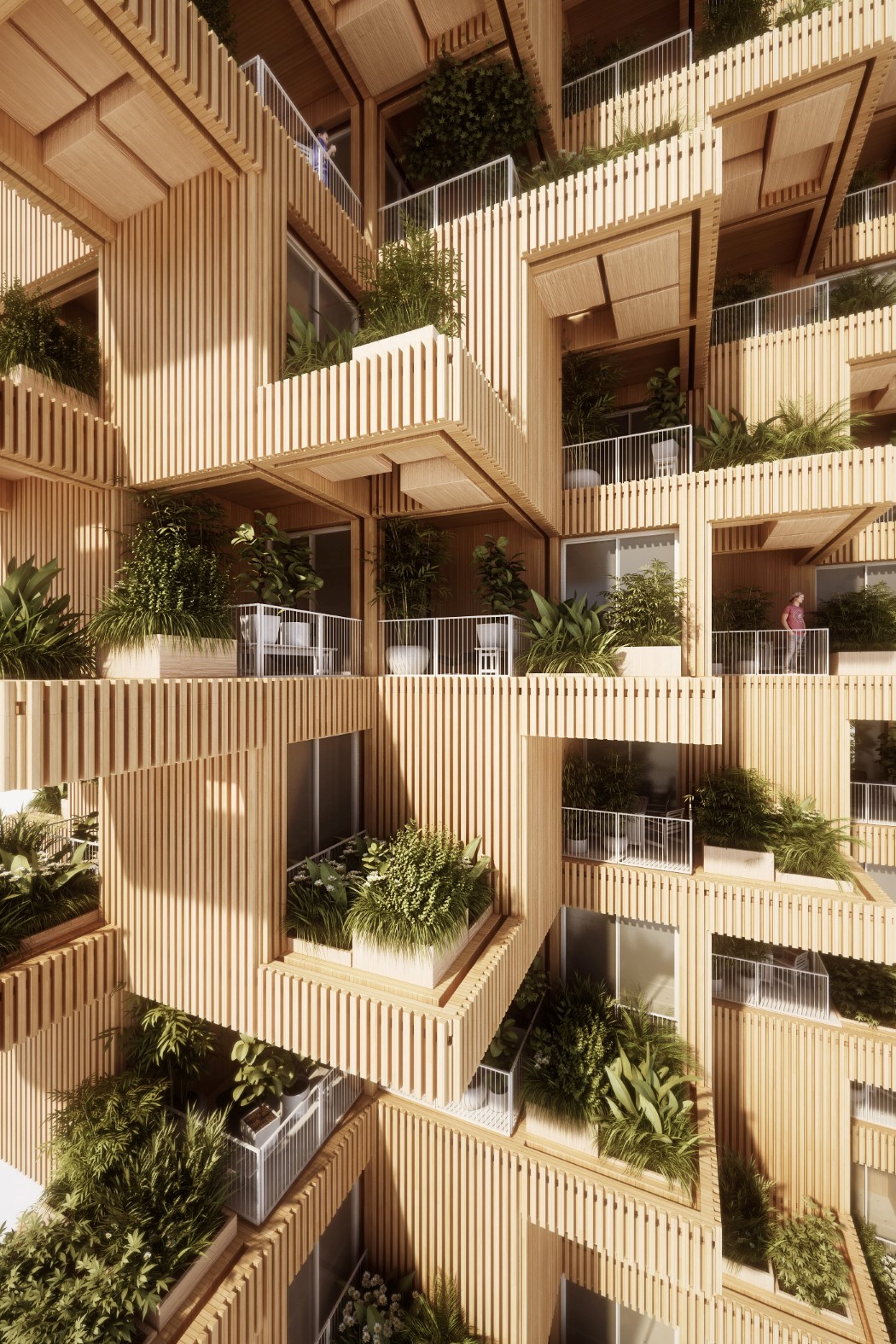
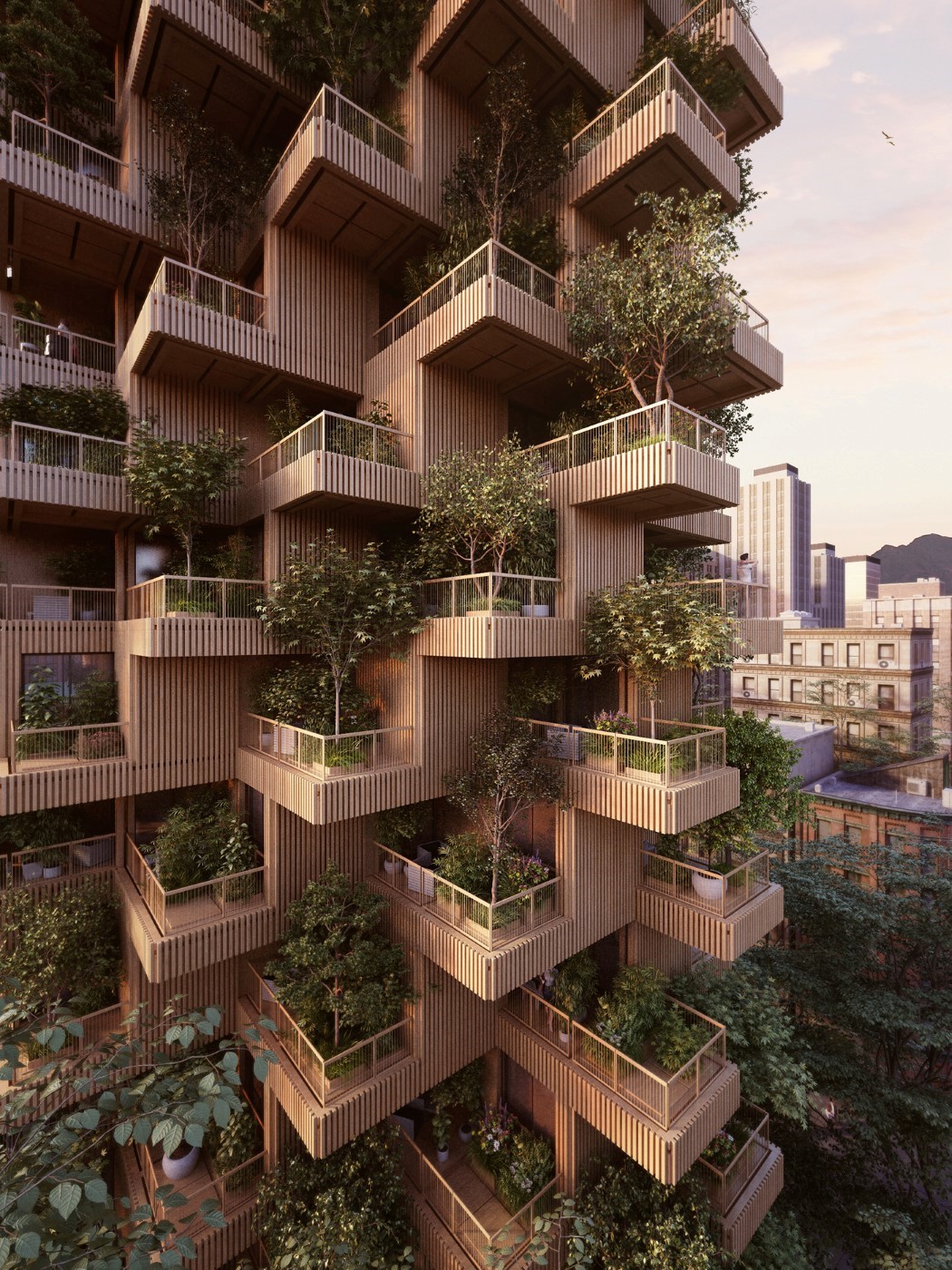
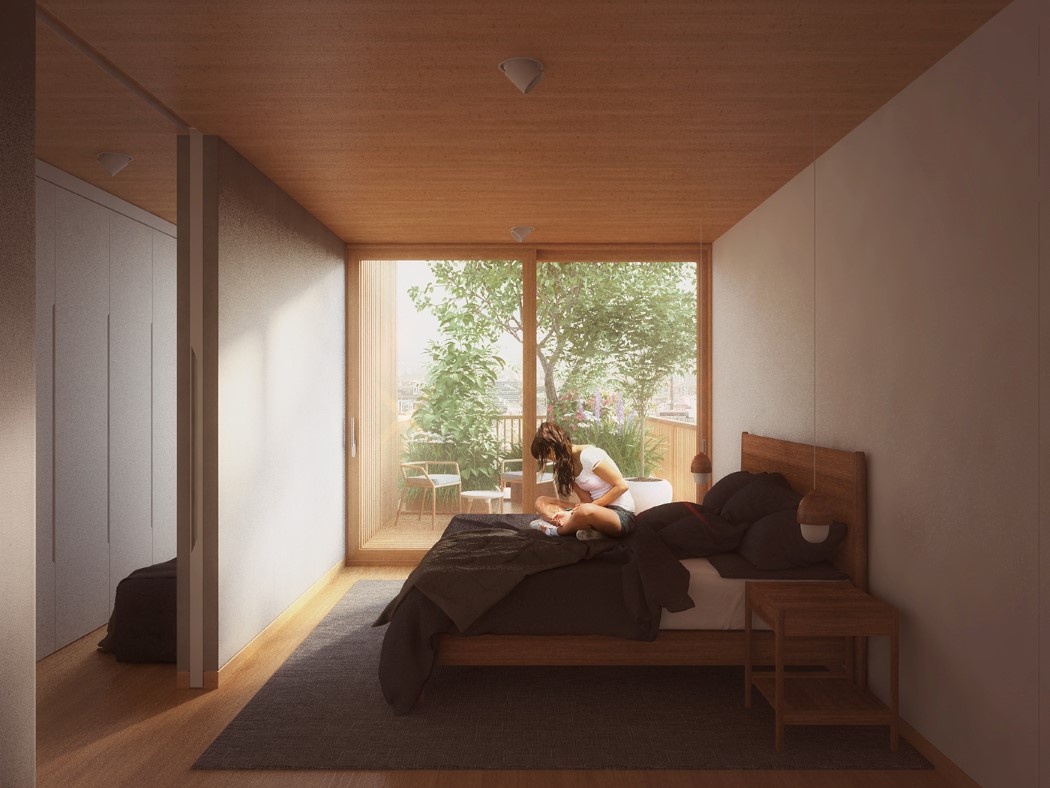
![]()











